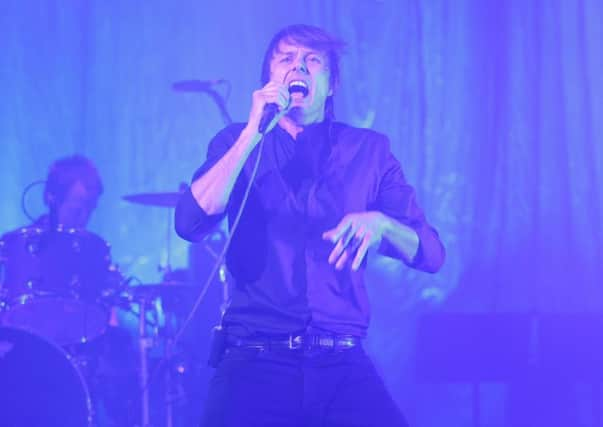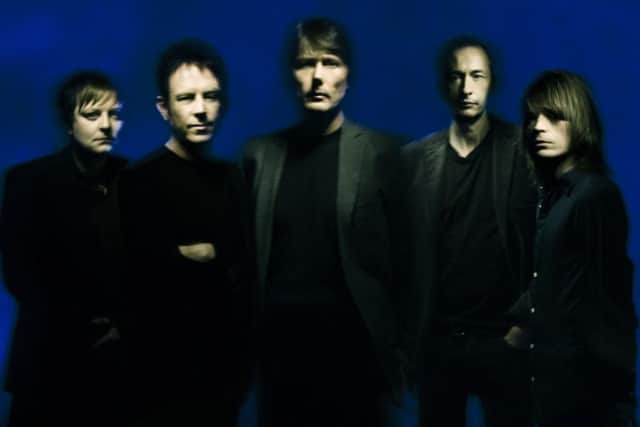Gig review: Suede, 02 Academy Leeds


No such ambivalence is in evidence on the last night of the Britpop survivor’s tour in support of Night Thoughts. Even when playing behind a semi-transparent video screen for the first half of the set, during which the London quintet play the current album in its entirety, Anderson can be glimpsed ‘shaking his bits to the hits’.
The decision to appear behind a screen while showing Roger Sargent’s impressionistic film to accompany the concept album - about a man’s flashbacks as he’s drowning - is a brave concept. It’s nonetheless one that places an artificial barrier between band and audience. This leads to a somewhat subdued atmosphere, with only the elegiac ‘I Can’t Give Her What She Wants’ managing to penetrate the physical and emotional distance.
Advertisement
Hide AdAdvertisement
Hide AdThere’s no such problem during the ‘hits and treats’ set, when the screen is lifted and they delve into tracks from their 20-year career. This could easily turn into a nostalgia exercise but, unlike many of their contemporaries, they’ve continued to write new material. As such the urgency of ‘Sabotage’ (from 2013’s Bloodsports) is as strong and warmly received as the glam-rock of ‘Metal Mickey’ (from 1993’s self titled debut).


They also don’t always plunder the obvious material, with three tracks being ones they threw away as B-sides. One of these, ‘Europe Is Our Playground’, is gloriously reworked from icy Germanic synth strains to an acoustic paean performed with just backing from Richard Oakes.
Such reinvention is part of a wider attempt to update their catalogue, with the addition of Neil Codling on rhythm guitar for most of the set giving tracks a fuller sound. This is particularly true of ‘Trash’ and ‘Beautiful Ones’, drawn from 1996’s Coming Up, which at the time suffered from Oakes’ thin and often tinny guitar sound.
These new adaptations make the band sound as vital as ever and, despite now being part of the establishment, they maintain their stance as outsiders who can unite the audience in a bruised love.